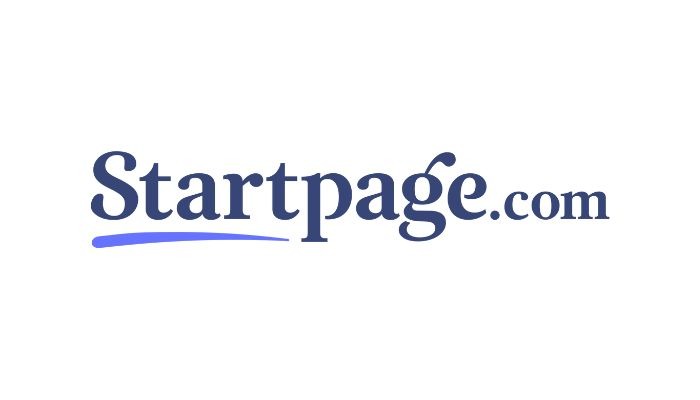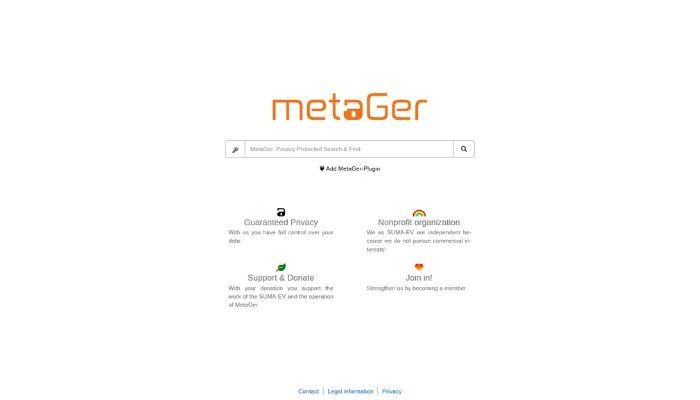Alternatives to Google that Are Much Safer: TOP 10!
Alternatives to Google that are more secure than the world’s most popular search engine can be useful when you want to avoid having your information stored by the system.
When performing a search on the Google search engine, a series of information about the device used by the user is collected and stored by the system. This information includes the device’s IP address, information about the browser (such as the user agent), and often a unique identifier. This data is recorded in cookies, which allow Google to personalize the user’s search experience and provide more relevant results based on their preferences and search history.
It is important to note that this information is collected anonymously and can be managed and deleted by users through browser privacy settings.
Here are ten alternatives to Google:
1. StartPage
StartPage is a search engine that provides users with Google search results, but with the advantage of not collecting personal information from the user. Unlike Google, which uses cookies to track users’ searches and online activities, StartPage is based in the Netherlands and is committed to protecting users’ privacy.
Startpage is a search engine that does not track, does not collect personal information and does not store navigation data. It delivers relevant search results without compromising users’ privacy.
Startpage uses Google as a search engine, but acts as an intermediary between the user and Google. This means that the user gets the results from Google, but without exposing their personal information to the search giant. Startpage makes the search request on behalf of the user, without storing their IP address or other personal information. In addition, Startpage uses SSL/TLS encrypted connections to ensure user privacy during data transmission.
Startpage offers additional features that increase user privacy, such as the option to visit websites anonymously using Startpage Proxy. Its Proxy allows the user to access websites without being tracked by them. This Google also offers a browser extension that allows the user to search anonymously directly from the browser’s address bar.
Another advantage of Startpage is that it allows users to get personalized search results without compromising their privacy. Users can save their personalized search settings and use those settings every time they use Startpage.
Unlike other search engines that display ads based on user data, Startpage does not display personalized ads. Ads displayed by Startpage are based on search terms only, without compromising user privacy.
2. Searx
Searx is an open source search engine that allows users to search the web without compromising their privacy. As an open source collaborative development platform, Searx’s code is open and available for anyone to view and contribute to. This makes the platform more secure as independent software developers can verify code security.
The platform can also be described as a meta-search engine, this means that it does not have a search index of its own, instead it makes search requests on different search providers such as Bing, Google, Yahoo, DuckDuckGo, among others. others, and presents search results to the user on a single page.
Unlike conventional search engines, Searx does not collect any user information, including IP address or search history. Additionally, search results are presented anonymously, without linking the results to any specific user.
3. Metager
MetaGer is also an open source search engine, but its main focus is on user privacy and data protection. Metager’s goal is to provide users with secure searching, with no data tracking and no collection of personal information.
This open source search engine was created in 1996 in Germany and has since become one of the leading alternatives to Google in the world. The search engine is based on metasearch technology, which uses other search engines to return relevant results to the user. This means that Metager does not track user searches or store personal information on its servers.
One of the main features of Metager is its strict privacy policy. The search engine does not store the user’s IP address or use cookies to track online activities. In addition, Metager is capable of blocking ads and malicious scripts that can compromise user privacy.
4. SwissCows
SwissCows is a search engine that preserves user privacy as it does not collect personal information. It uses proprietary data indexing technology to deliver accurate and relevant search results.
Created in 2014 by Andreas Wiebe and his development team in Switzerland, its main objective is to provide accurate and relevant results without compromising user privacy. Unlike other search engines, which track and collect information about users’ searches and online activities, SwissCows promises not to store any personal data, not even IP addresses. This means your personal information and searches are kept private and secure.
SwissCows uses a proprietary search algorithm that analyzes user queries and returns relevant results from a wide range of trusted sources. Rather than collecting data on users, SwissCows focuses on providing quality results.
One of the distinguishing features of SwissCows is its ability to provide instant answers to simple questions such as “What is the capital of France?” or “Who is the president of Brazil?”. This is possible thanks to the use of databases and artificial intelligence.
In addition, SwissCows also has a built-in security filter that blocks websites with malicious, potentially dangerous or inappropriate content.
5. Qwant
Qwant is one of the most famous European alternatives to Google, founded in 2013 in France, whose main characteristic is privacy and independence from large technology companies.
Unlike most popular search engines like Google, Bing and Yahoo, Qwant does not use user data to personalize search results or to display targeted ads. In this way, the user can browse without worrying about their personal information being tracked.
Qwant is also concerned with the quality of search results. For this, it uses its own algorithms that prioritize the relevance and security of the sites found. In addition, the search engine has a content filtering system that prevents the display of unwanted results, such as phishing sites, spam or inappropriate content.
Another interesting feature of Qwant is the option to search by categories, such as news, images, videos and social networks. This makes it easier to search for specific content and helps avoid showing irrelevant results.
Qwant also offers other interesting features, such as Qwant Junior, a version of the search engine developed especially for children, with results adapted to children and blocking inappropriate content.
This alternative to Google even has a browser extension that allows you to carry out searches directly from the address bar, without having to access the search engine’s website. The extension also blocks third-party cookies and trackers and offers an incognito mode.
6. DuckDuckGo
DuckDuckGo is a private search engine that prides itself on not tracking users. Unlike other search engines, it does not store users’ personal information such as browsing history, IP address and other identifying information.
Founded in 2008 by Gabriel Weinberg, DuckDuckGo promotes user privacy as its main feature. Unlike traditional search engines such as Google, which collect personal information from users such as browsing history, previous searches and geographic location, DuckDuckGo does not store any personal user information. DuckDuckGo also does not track the user while browsing the internet.
Its simple and clean interface with relevant and accurate search results. The search engine uses information from various sources, such as Wikipedia and Bing, to provide accurate and up-to-date results. This alternative to Google also offers additional features like calculators, unit converters, weather, maps, and more.
The search engine also offers extensions for popular browsers such as Chrome and Firefox that allow users to search directly from the browser’s address bar, as well as advanced search features such as search operators that allow users to filter search results based on specific keywords and Boolean operators such as “and” and “or”.
DuckDuckGo offers, in addition to other items, the option to search the “dark web”, which is a part of the internet that is not accessible through common browsers. The “dark web” search is a unique feature that can be useful for those looking for specific information.
7. Mojeek
Mojeek is a search engine that stands out for its strong privacy philosophy. Launched in 2004, it is based in the UK and is built around the principle that users have a right to privacy and that the search engine must be concerned about the ethics and well-being of users.
This alternative to Google uses its own crawling technology, which is based on a content indexing approach. That means it crawls websites, indexes their content, and then uses that information to build its own search index. This way, Mojeek can provide relevant and useful results to users without having to track them.
Mojeek also has a transparency and privacy policy that is easily accessible on the website. The privacy policy details what information Mojeek collects, how that information is used and how the site protects it. The site also states that Mojeek does not share information with third parties unless legally required to do so.
This alternative to Google takes an ethical approach to indexing websites, meaning that it does not index websites that contain content that could be considered harmful or offensive, such as pornography, violent content, or content that promotes hate. This is done to create a safer and more positive environment for users.
To top it off, Mojeek also has a simple and easy to use user interface. It offers advanced search features such as the ability to filter results by language or country, and also allows users to save their favorite searches for later access.
8. YaCy
YaCy is a decentralized and open source search tool that allows users to search for information on the Internet without compromising their privacy.
Unlike centralized search engines like Google and Bing, which index the Internet on their own servers, YaCy is a decentralized search engine, meaning that it builds its index through a network of connected users.
YaCy consists of two main components: the search server and the search client. A local machine runs the search server, while other machines on a distributed network run the search client.
When a user performs a search, YaCy sends a request to various search clients on the network and the results are returned to the user.
It works on an information exchange system, where each customer contributes to the global index with information obtained by searching the web. Because users provide their own search results, YaCy avoids the need for third parties to collect users’ personal information.
This alternative to Google uses encryption to protect user privacy, which means that no one will be able to track your searches. Users also have the ability to create their own custom indexes so they can search for specific information only or limit their search to a particular set of sites.
9. Givero
One of the most popular alternatives to Google is Givero, which was launched in 2018 by a group of Danish programmers with the aim of creating one of the most ethical and transparent alternatives to Google. Since then, the search engine has gained a loyal user base, particularly in Europe.
One notable difference is the way Givero handles funding. While Google is an advertising company that relies on serving ads to generate revenue, Givero has a more diversified business model. In addition to displaying search results, Givero offers email services, news, weather, and even donations to non-profit organizations.
One of the main advantages of Givero is its transparent and ethical approach. The search engine publishes an annual transparency report, which details content removal requests, user data requests and other relevant information. In addition, Givero commits to donate 50% of its profits to non-profit organizations working in areas such as the environment, education and human rights.
Givero also offers advanced search features such as the ability to search by date and location, which can be useful for researchers, journalists and marketers. Furthermore, the search engine uses machine learning algorithms to provide you with relevant and accurate search results.
However, Givero still has a long way to go to compete with Google in terms of features and popularity. While Google has a market share of over 90%, Givero is still relatively unknown outside of Europe. Furthermore, Google has a vast ecosystem of products such as Gmail, Google Maps and YouTube that make it difficult for users to completely abandon the platform.
10. Ecosia
Ecosia is a self-described search engine as the world’s greenest. It stands out for its sustainability and social responsibility policies, which make it one of the most interesting alternatives to Google.
This alternative works similarly to Google, allowing users to search the web via keywords. The difference is that, when using Ecosia, each survey carried out generates revenue for the organization. This income finances reforestation projects around the world.
In 2009, German entrepreneur Christian Kroll founded Ecosia. Since then, the company has grown rapidly, attracting users across the world. In 2021, Ecosia reached the milestone of 15 million monthly users worldwide.
One of the main advantages of Ecosia is its transparency policy. The company publishes regular reports on its finances and reforestation projects. This allows users to track the impact of their searches and know exactly how their use of Ecosia is contributing to the fight against climate change.
Also, Ecosia is much greener than Google. The company runs its servers on renewable energy and offsets the carbon emissions of its staff. Ecosia is also certified as a B-Corp company, which means it meets the highest standards of social and environmental responsibility.
Of course, Ecosia isn’t perfect. The company still doesn’t have the same search and personalization capabilities as Google. In addition, some users may find it difficult to adapt to Ecosia’s interface, which may be a little different from what they are used to.
However, for those who are willing to give Ecosia a try, there are plenty of reasons to do so. In addition to helping fight climate change, Ecosia is an ethical and transparent company that is trying to make a difference in the world. For many users, this can be a worthy alternative to Google.
Concluding
Did you like to know more about possible alternatives to Google that you can use today to search more safely? So stay with us!










